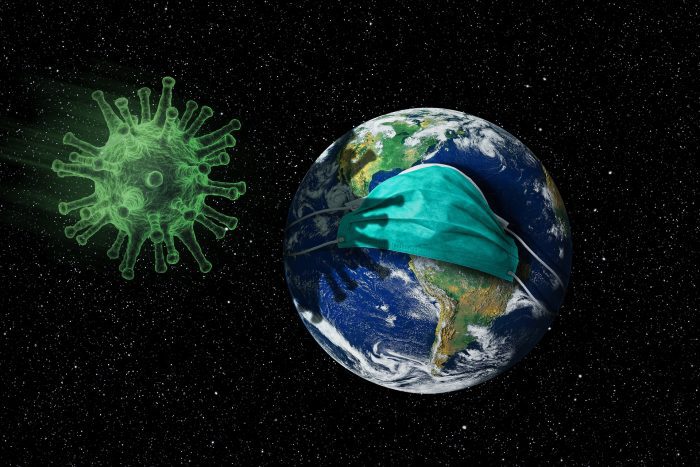D. None of the Above: COVID woes reduced the level of climate change concerns, SBU study says
By Daniel Dunaief

My grandmother was a worrier.
Even she, however, would have had a hard time worrying about other major challenges, problems and threats during the worst of the COVID-19 pandemic.
That, it turns out, was also true for the world during COVID when it came to discussions about the threat from climate change.
In a recent study published in the prestigious journal Proceedings of the National Academy of Sciences, Oleg Smirnov, associate professor in the Department of Political Science at Stony Brook University, examined the level of concern on Twitter about climate change during 2020 and 2021 and compared those numbers to 2019, the last year before COVID.
According to the pool of finite worry, which Princeton professor of Psychology Elke Weber developed, environmental and climate concerns decline amid worries about other major threats.
Smirnov found that the total number of tweets that mention climate change dropped to 5.6 million in 2020 and 5.3 million in 2021, from 8 million in 2019. This, Smirnov points out, occurred despite an increase in Twitter users, more climate disasters and more climate news in 2021.
“The psychological foundation tell us that people may only really respond to one threat at a time,” Smirnov said in an interview. The anxiety and the reaction to that threat may be limited because it requires major energy.
“Maybe, for biological reasons, [people] put all their energy into responding to the most immediate threat,” Smirnov added.
By tracking daily tweets and various measures of COVID cases, Smirnov found on a finer scale as well that discussions of climate change diminished amid higher infections and mortality.
For every thousand new COVID-19 cases in the United States, climate change tweets decreased by about 40.5 tweets per day. Every thousand new deaths resulted in 3,308 fewer climate tweets.
While Smirnov understood the need to focus on the pandemic, he suggested a lack of concern about climate change could disrupt efforts to protect the planet
“This has profound implications,” Smirnov said. “Without a focus on climate change, without an emphasis on its importance, there is less urgency and less pressure on politicians to do something about it.”
Even in better times, climate change efforts are “fragile,” he said, which adds to the uncertainty about the ability to address the challenge adequately.
Indeed, even the sentiment analysis, in which Smirnov reviewed the emotional content of words used to describe climate change and the threat to the planet and humanity, became less negative during the worst of the pandemic.
When asked about the possibility that climate change concerns might have declined during COVID in part because the carbon footprint declined amid travel restrictions and slowdowns in industrial production, Smirnov likened such an approach to short-term fasting or extreme dieting.
While spending a few days on these extreme diets can reduce a person’s weight over the course of days, such an approach provides “no substantial improvement in your health” longer term, he said.
So, what about now, as concerns about the pandemic abate, people have stopped wearing masks and schools and stadiums are full?
Smirnov plans to continue to collect Twitter data for the remainder of this year, to see whether a return to normalcy brings the focus back to the threat from climate change.
As for his own experience, Smirnov recognized that climate change took a back burner amid the worst of the pandemic.
“My attention certainly was hijacked by COVID-19, despite the fact that climate change is part of my work,” Smirnov said. In April of 2020, Smirnov recalled worrying about where his family would find food instead of thinking about greenhouse gases and rising sea levels.
In the present, Smirnov remains concerned about the kind of tipping points and climate inertia that threatens the future.
Ever the worrier, my grandmother might be relieved enough by the less virulent form of the virus and the availability of vaccines and treatment to return to worrying about the threat climate change poses.







